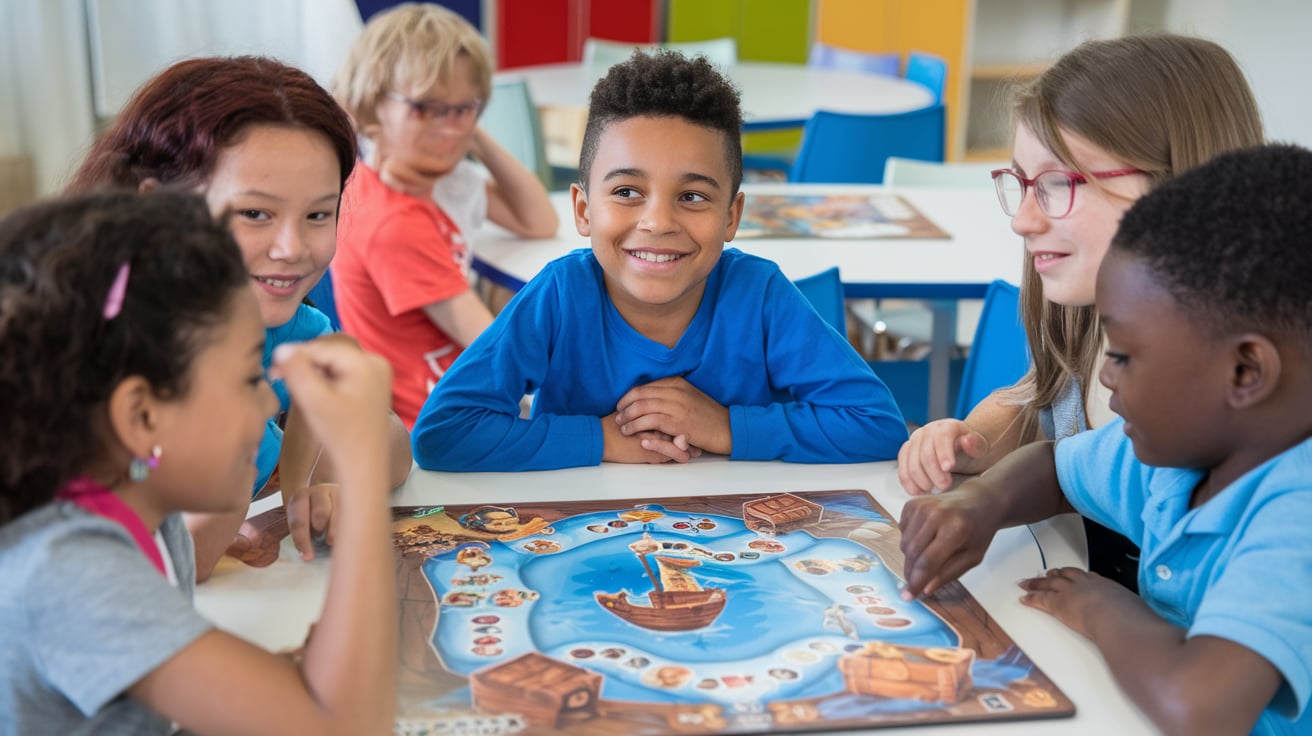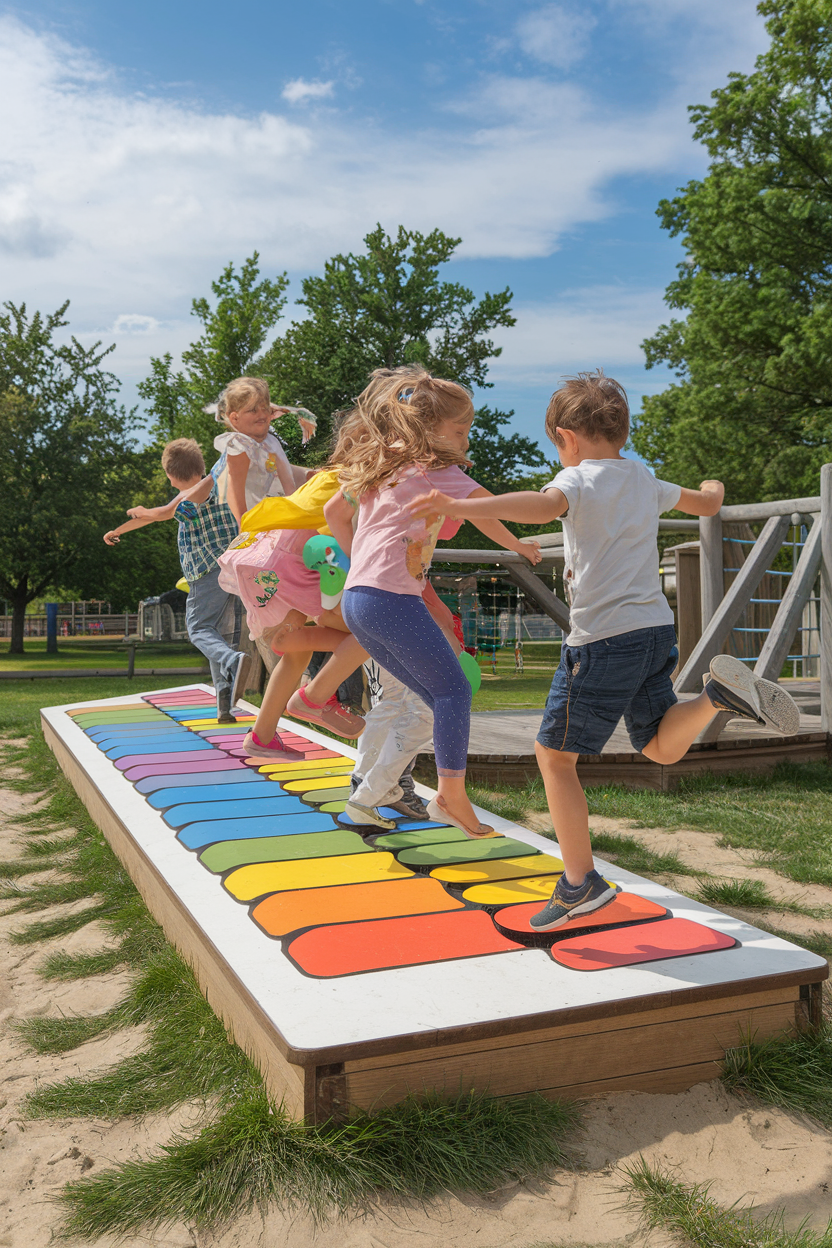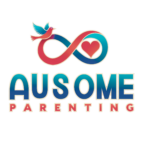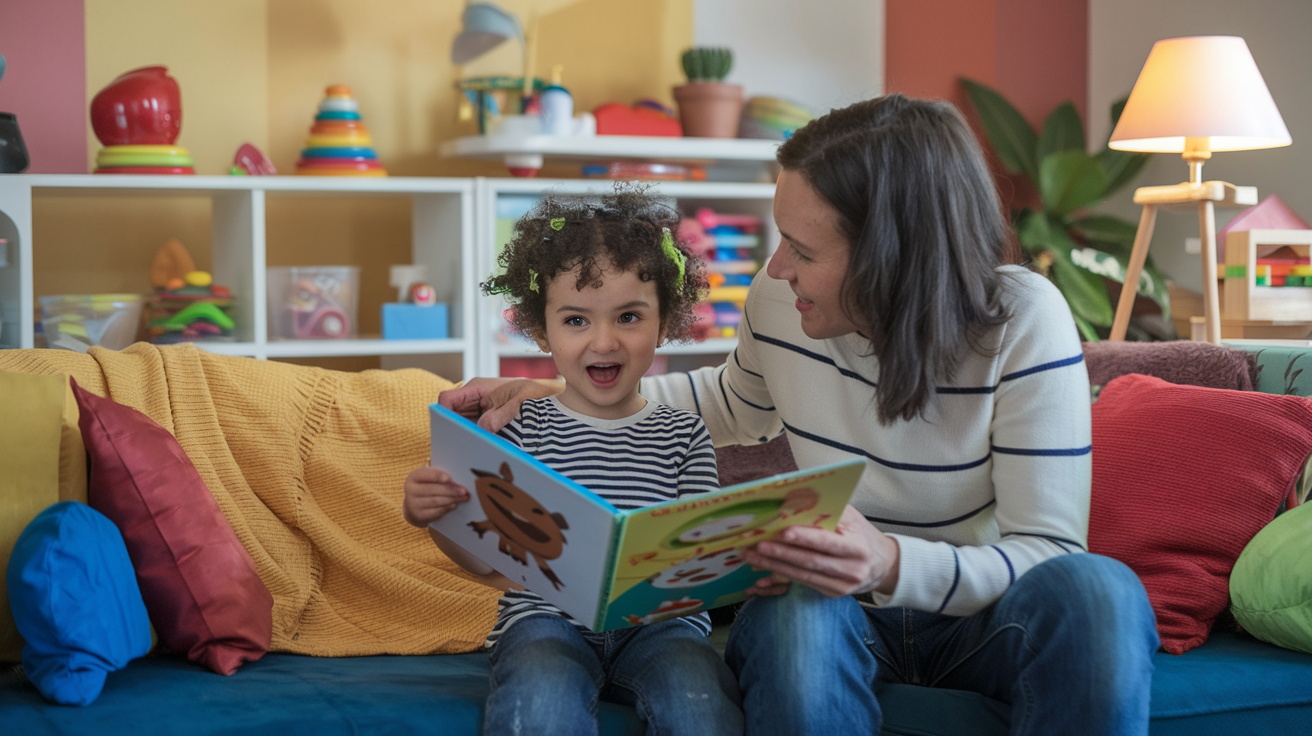Social interaction is something many of us take for granted. But for autistic children, navigating the intricacies of social cues, conversations, and unspoken rules can be a real challenge. Developing social skills is crucial for autistic children to build friendships, succeed in school, and feel a sense of belonging in their communities. Fortunately, there is a wide range of fun and engaging social skills activities that can support your child’s journey.

Why are social skills important for autistic children?
- Friendship Formation: Mastering social skills helps autistic children connect with peers, establish friendships, and combat feelings of isolation.
- Improved School Experience: From understanding classroom dynamics to collaborating on projects, social skills significantly impact a child’s success at school.
- Boosted Confidence: As autistic children improve their social abilities, their self-confidence grows, setting them up for greater success in life.
Key Social Skills to Develop in Children with Autism
While this list isn’t exhaustive, some core social skills to target in activities include:
- Nonverbal communication: Eye contact, facial expressions, body language
- Conversation skills: Starting and maintaining conversations, turn-taking, listening actively
- Recognizing emotions: In both themselves and others
- Problem-solving: Handling conflicts and challenging social situations
- Empathy and perspective-taking: Understanding the viewpoints of others
How to Choose the Right Social Skills Activities for Your Autistic Child
Here are key factors to consider:
- Age and Development: Choose activities appropriate for your child’s age and current abilities.
- Interests: Incorporate your child’s passions into social skills practice – if they love superheroes, those can be your role-play characters!
- Challenges: Target specific skills where your child might need the most support.
Simple Social Skills Activities for Autism at Home
The beauty of these activities lies in their easy integration into your daily routine. Here are some ideas to get you started, with specific examples for different age groups:
Early Childhood (3-5 years old):
- Social Story Time:
- Craft short social stories around familiar routines: “It’s morning! Time to greet everyone at breakfast. We say ‘good morning’ and look at each other’s face. What does everyone say?”
- Include visuals like pictures or simple drawings to enhance comprehension. Act out the story together, encouraging your child to use facial expressions and greetings.
- Link social stories to upcoming events like playdates or new activities, helping your child prepare emotionally for social interactions.
- Emotion Charades:
- Prepare flashcards or pictures depicting basic emotions (happy, sad, angry, scared). Take turns acting out the emotions while the other guesses.
- This activity helps children recognize emotions in themselves and others, a crucial skill for navigating social situations.
- For a more interactive twist, have your child create their own emotion charades!
- Sing and Play Along:
- Many children’s songs are fantastic for reinforcing social skills. Songs with actions like “If You’re Happy and You Know It” or “Head, Shoulders, Knees and Toes” encourage turn-taking, following instructions, and basic physical coordination.
- Nursery rhymes like “The Itsy Bitsy Spider” or “Five Little Monkeys Jumping on the Bed” often involve simple narratives with social elements. Act them out together, discussing the characters’ interactions.
Middle Childhood (6-10 years old):
- Cooperative Board Games:
- Move beyond simple turn-taking games and introduce cooperative board games where players work together towards a common goal. This fosters teamwork, communication, and celebrating shared success.
- Games like Candyland (cooperative version) or Forbidden Island can be a great starting point. Discuss strategies together and highlight the importance of working as a team to win.
- Movie Magic:
- Turn movie night into a social skills lesson! Pause the movie at key moments and discuss the characters’ emotions, how they’re communicating, and the social cues they’re picking up on.
- Encourage your child to predict what might happen next based on the social interactions they observe. This strengthens their ability to analyze social situations and understand non-verbal communication.
- Comic Strip Conversations:
- Create a comic strip together, focusing on a specific social interaction your child might struggle with (e.g., asking to join a game, dealing with disappointment).
- Draw or use pictures to depict the scenario, with speech bubbles for what each character says. Discuss different ways the interaction could unfold and role-play some positive outcomes.
Remember:
- Keep it Fun and Age-Appropriate: Match activities to your child’s interests and developmental stage.
- Positive Reinforcement: Acknowledge and celebrate your child’s efforts, no matter how small. This keeps them motivated and engaged in practicing social skills.
- Start Simple and Gradually Increase Complexity: As your child masters a skill, gradually introduce new challenges to keep them progressing.
These are just a few examples, and the possibilities are endless!

Social Skills Activities in Therapy or Group Settings
These environments benefit immensely from the guidance of a qualified professional. Here are some ways the activities can be amplified in this setting:
- Structured Social Skills Programs:
- These programs follow a specific curriculum focused on building different social competencies. Your child will get practice in a controlled environment, surrounded by peers facing similar challenges.
- They often use a variety of techniques – games, role-plays, videos, and discussion – to keep things engaging for a range of learning styles.
- Peer Role-Plays:
- This is invaluable with a therapist present to facilitate the activity. The professional can model communication, set expectations for the interaction, and help redirect if needed.
- Children get invaluable practice interacting with peers who may have similar social strengths and weaknesses, creating a safe environment for mutual growth.
- Individualized Activities:
- Working one-on-one with a therapist allows for deep personalization of social skills work. The therapist can observe your child closely and craft activities that target precise skills where support is most needed.
- The therapist can act as a social partner for the child, modeling appropriate behaviors and providing immediate, tailored feedback.
Community-Based Social Skills Development for Autistic Children
Venturing into the broader world requires some extra preparation. Here’s how to turn everyday experiences into social skills practice:
- Community Classes or Clubs:
- Enroll your child in a class or club matching their interests (sports, art, music, etc.). Structured activities with clear rules provide a safe environment for peer interaction.
- Discuss expectations beforehand: “We’ll meet new friends and learn to cheer for others and ourselves!”.
- Debrief with your child afterwards about positive interactions and how it felt to participate.
- Inclusive Playgrounds or Playdates:
- Choose venues with a mix of neurodiverse and neurotypical kids.
- Start with shorter outings and focus on simple interactions, like taking turns on a swing or asking to join a group for a few minutes.
- Be discreetly present to support your child if needed, gradually offering less assistance as their confidence grows.
- “Helper” Role:
- Give your child a sense of responsibility at the store (putting a few items in the cart), at home (setting the table), or with a neighbor (holding the door).
- Explain the task clearly and encourage interaction: “Let’s ask the shop assistant where we can find the milk.”
Important Note: Don’t be afraid to prearrange with places like libraries, community centers, or even your local park to visit during quieter hours for reduced sensory stimulation. This allows your child to practice social skills in a less overwhelming environment.
Tips for Getting the Most Out of Social Skills Activities
Consistency, positivity, and adapting to your child’s unique needs are key! Here are some crucial tips:
- The Importance of Consistency and Repetition: Social skills development takes time and consistent practice. Carve out even a short amount of time each day for specific activities or incorporate social practice into daily routines.
- Make it Fun and Engaging: Children learn best when they’re having a good time! Use activities that match their interests and get playful with your voice and enthusiasm. A positive experience encourages engagement and a willingness to practice.
- Positive Reinforcement: Focus on praising even small efforts and progress. Phrases like “I love how you shared your toy with your friend!” or “Good job trying that new conversation starter” keep kids motivated. Remember, tangible rewards like stickers or small treats can be useful for some children.
- Adapting Activities for Your Child’s Age and Ability Level: Start simple and gradually increase the challenge. When an activity becomes too easy, brainstorm how to “level up” its complexity. For example, move from simple turn-taking games to more elaborate board games or from short to longer sessions at the playground.
- Collaborating with Therapists or Educators (if applicable): Therapists are a goldmine of knowledge! Tap into their expertise for activity ideas that align with your child’s specific goals and for ways to customize existing activities to their needs.
Extra tip: Don’t be afraid to let your child take the lead sometimes! Observe them closely during play to identify social skills they’re practicing naturally. You may get ideas for activities they already enjoy that can be expanded to include additional skills and practice.
Excellent! Here’s the next section, aiming to provide parents with additional resources and a sense of community while navigating the journey of supporting social skills development:
Additional Resources for Social Skills Development in Autism
- Understanding Your Child’s Social Strengths and Challenges: Every autistic child presents a unique profile. Observe your child in different situations to pinpoint strong points (following directions, sharing, etc.) and specific areas where more support is needed (handling conflict, understanding humor, etc.). This knowledge empowers you to individualize social skills activities for the biggest impact.
- The Importance of Patience and Celebrating Small Wins: Social skills development can be a long yet incredibly rewarding process. Be patient with your child and with yourself. Acknowledge each step of progress as a victory worth celebrating! Even if taking turns in a game goes smoothly for just a few rounds, that’s a success!
- Resources for Parents:
- Autism Support Organizations: Find support groups, both in-person and online, where you can connect with other parents. These are fantastic for exchanging ideas, seeking advice, and feeling less alone in your journey. Reputable organizations include The Autism Society or Autism Speaks.
- Books Focused on Social Skills: Look for books designed specifically for autistic children and their parents. In my book “Ausome Parenting. The Guide to Endless Love, Emotional Support, and Acceptance for Your Autistic Child” I give many valuable and healthy approaches to get children on the spectrum successfully socialized and integrated.
- Online Resources: Websites dedicated to autism spectrum disorder offer extensive articles, videos, and interactive activities centered around social skills development.
Pro Tip: Remember to take care of yourself too! Parenting is a demanding but rewarding role. Make sure to find time to relax, recharge, and connect with your support system.
Conclusion: Helping Your Autistic Child Thrive with Social Skills
Building social skills takes time, practice, and a supportive toolkit. Remember, you are the best expert on your child. With a little creativity and a positive attitude, everyday moments can transform into opportunities for social learning and growth.
Small steps lead to big accomplishments. Embrace the progress, celebrate every achievement, and never underestimate your incredible power to make a difference in your autistic child’s social journey.
Call to Action: This week, choose one social skills activity from this article and give it a try with your child! Observe how they respond and use it as a launching pad for further practice tailored to their unique needs.
Let’s keep building together: Do you have any specific social skills questions or challenges you’d like to discuss? Share them in the comments section below, and we can brainstorm together!
Resources
Autism Support Organizations
- Autism Society: (https://autismsociety.org) A leading autism advocacy organization providing resources, support, and information for families.
- Autism Speaks: (https://www.autismspeaks.org/) Dedicated to autism research, advocacy, and increasing awareness. Offers toolkits and guides for parents.
- Organization for Autism Research (OAR): (https://researchautism.org/) Focuses on research-backed information and resources for families.
Books Focused on Social Skills
- “Ausome Parenting” by Natalie Loveson (https://ausomeparentingbooks.com/) Provides practical strategies and helpful activities for parents of autistic children, with a focus on building social skills.
- “Social Skills Training: for Children & Adolescents with Autism & Social-Communication Differences ” by Jed Baker (https://www.amazon.com/Social-Skills-Training-Adolescents-Anniversary/dp/1957984228 ) Uses illustrations and simple explanations, ideal for younger children.
- “Social Skills Activities for Kids” by Natasha Daniels (https://www.amazon.com/Social-Skills-Activities-Kids-Understanding/dp/1641522968 ) Offers a wide range of activities for different ages and skill levels.
Online Resources
- Autism Navigator: (https://autismnavigator.com/) A comprehensive collection of videos, articles, and courses covering various aspects of autism, including social skills development.
The Autism Helper: ([https://theautismhelper.com/]) Offers printable resources, activity guides, and strategies for parents and teachers.



